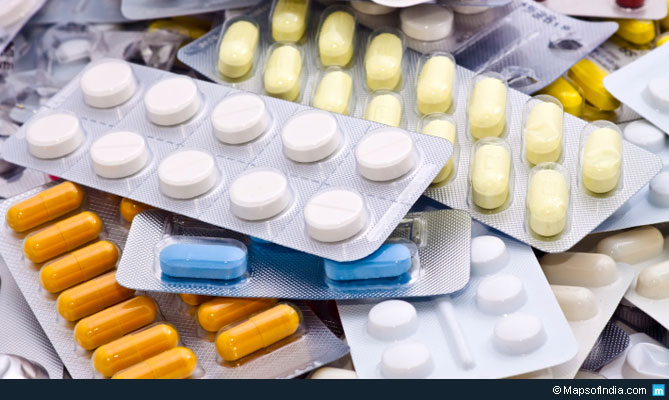After lots of debates and controversies, the Government of India has finally come up with the proposal of controlling the prices of all life saving medicines from the beginning of 2015. In a circular issued by the Government of India, all medicine packs with the price fixed by the Government will be highlighted with black ink on a bold red strip and this will be available in all chemist shops, hospitals and other health centres. The Government has already prepared its plans and processes to make this mandatory and henceforth beginning 2015, regulated drugs’ prices will be printed on their packs as “DPCO Scheduled Drug”.
The proposal
The Ministry of Consumer Affairs, Food and Public Distribution and the Health Ministry have given their nod to the proposal so as to protect the interests of the consumers in the use of medicines. The National Pharmaceutical Pricing Authority (NPPA), which regulates and monitors prices of drugs, is regularising the move. The Government has also proposed to bring down the prices of at least 100 more drugs/medicines by making rectifications in the present Drug Price Control Order, 2013. The proposal in its last stage is waiting for the opinions from stakeholders, pharmaceutical companies, consumer organizations and State drug authorities, latest by November end, so that it can be implemented from January 2015.
Over-charging of medicines and devices
The NPPA in July 2014 had issued a notice in July where it had mentioned to impose price caps on 108 non-essential drugs, treating varied diseases ranging from diabetes to HIV/AIDS. However, this was challenged by various groups in the courts. So far, according to Drug Price Control Act 2013, the authorities of the drug pricing have powers to fix the prices of non-essential medicines. Under Para 19 of the DPCO 2013, it’s clearly mentioned that it has the authority to control prices of drugs that are not under the NLEM (National List of Essential Medicines) under “extraordinary circumstances” and in “public interest”.
According to reports, there are more than 600 formulations which are modified into 6,000 plus packets of medicines of different brands and are sold all over the country, the urban and rural areas, including distant villages. Thus, it becomes very difficult to keep track of the price compliance. In fact the latest data by NPPA reveals that there are more than Rs 4,000 crore pending against several drug manufacturers who are overcharging consumers on different medicines.
In some cases, prices of medicines have seen an unbelievable rise. Cancer drug price goes up from Rs 8,000 to Rs 1.08 lakh. Not only medicines, even medical equipments and devices like stents, pacemakers, cochlear implant, bone cement, orthopaedic implants are over-charged, almost by over 100%, as compared to their actual price. It is very essential that such medical devices should also be brought under price control by NPPA.
Right now, the NPPA collects samples from the market randomly to find out overcharging cases. A mandatory ceiling price tag on packs will help in close monitoring of prices through consumers everywhere in the country.
NPPA’s move regarding this proposal
The NPPA is developing a software which will store information on all drug companies, including their regular updates, their manufacturing facilities, production level of essential drugs and product prices related data, and other details. This software in the long run will enable to get rid of one dangerous elements, that is high pricing of medicines, that afflict the Rs 80,000 crore domestic drug market. Alongside, NPPA has also proposed to set up NPPA cells in different States to keep track of the prices of various drugs and on the market. According to NPPA officials, even getting the top 1,000 drug firms to register in the database will enable them to collect information on about 90% of the domestic drug market.
End benefit to the consumers
Such a move will benefit the consumers by letting them know about the actual prices of medicines. If there are cases of overcharging, then the consumers can lodge a complaint by directly calling NPPA helpline number 1800111255 or voice helpline 1800114424. The idea to add the ceiling price is to make the consumers aware that they are not over-charged. This move will definitely make the pricing process of drugs more transparent and efficient and also will make easy to detect cases of overcharging and thereby take actions against violators promptly. These drugs with reduced pricing include antibiotics, hypertension, cough syrups, anti-diabetic drugs, pain killers, and drugs that help cure surgical infections, tuberculosis, AIDS etc.




